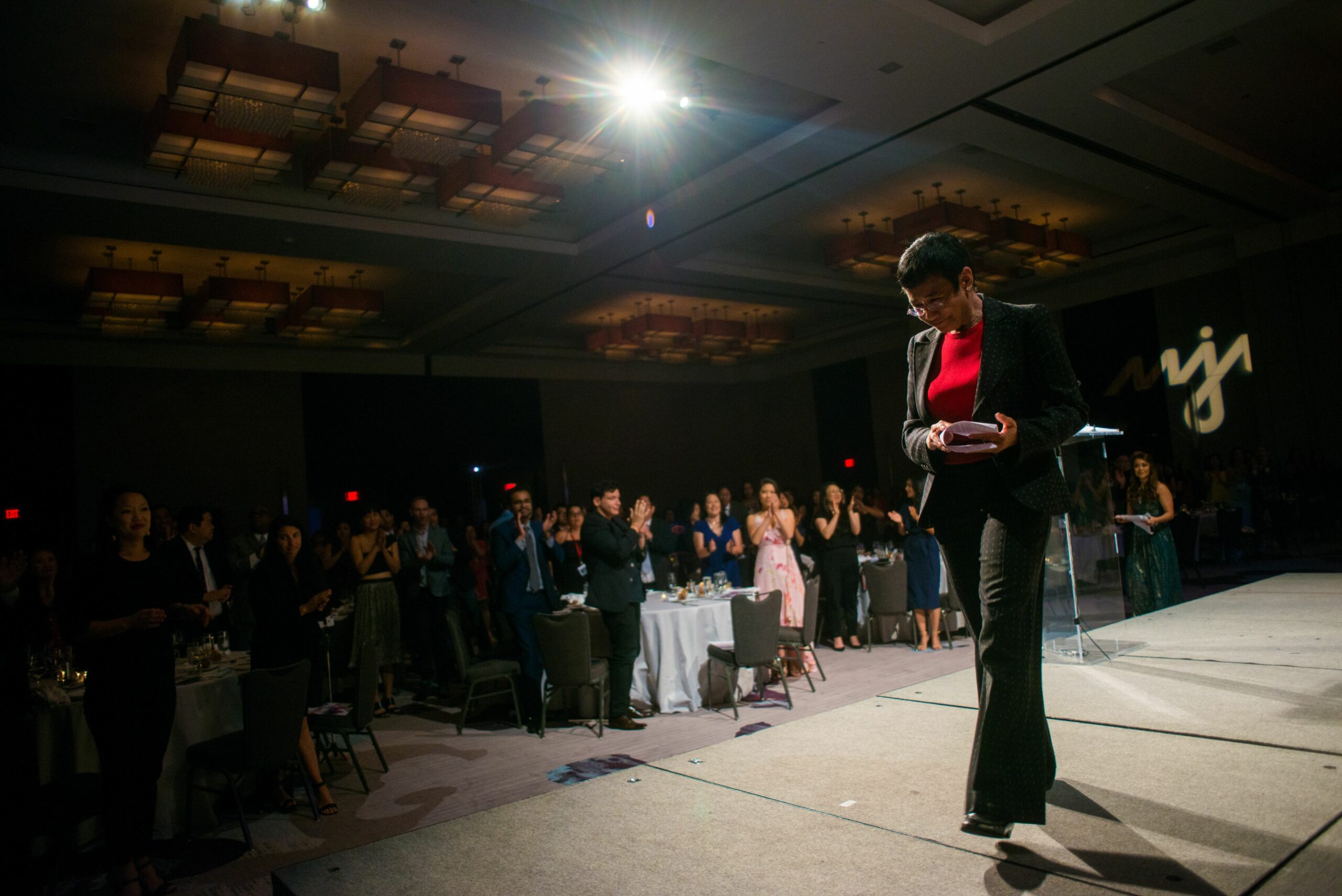With heavy hearts, AAJA extends our deepest condolences to the family and friends of Ken Mochizuki, pioneering Seattle author, journalist, educator, actor, and 2025 recipient of our Lifetime Achievement Award. After a fight with esophageal cancer, he passed away on September 20.
Growing up in South Seattle’s Beacon Hill neighborhood, Mochizuki’s path to becoming an author and journalist began with telling stories around a campfire as a Boy Scout and a passion for mass media, following the story arcs of “The Twilight Zone,” “Combat,” and the original “Star Trek” and “Mission: Impossible.” In high school, he became involved with the Asian American movement, participating in its student union and working on Seattle’s first Asian American newspaper, Asian Family Affair.
After moving to Los Angeles to begin an acting career and notably appearing in an episode of M*A*S*H, Mochizuki returned to Seattle to try his hand at writing, working at several journalism jobs before being hired by the International Examiner. There, he worked with AAJA-Seattle’s co-founder Ron Chew, and served as the chapter’s treasurer. Mochizuki was inspired by John Okada’s “No-No Boy,” saying, “It told me that we can write our own stories, that we can write our own versions of ourselves.”
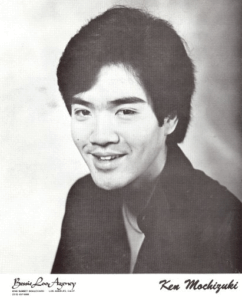
Actor resume photo, 1977. Photo courtesy of Ken Mochizuki.
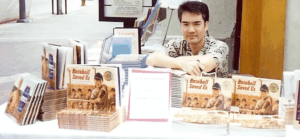
Ken Mochizuki signing stacks of his then-two picture books, Los Angeles, California, 1995. Photo courtesy of Ken Mochizuki.
Mochizuki is best known for his coming of age novel “Beacon Hill Boys” and children’s historical books including “Baseball Saved Us”, “Passage to Freedom: The Sugihara Story” and “Those Who Helped Us.” “Baseball Saved Us” is a story of what the sport meant to the men and boys incarcerated at Minidoka in Jerome, Idaho during World War II. Mochizuki’s own parents were incarcerated at Minidoka but rarely discussed the experience with him, resulting in his “lifetime of reconstructing” their memories.
Mochizuki’s impact was far reaching, and his life was dedicated to ensuring that Asian Pacific Americans are no longer asked, “But where are you really from?” He went on to become an educator, conducting presentations across the country, and never stopped storytelling.
In a recent essay, Mochizuki recalled honoring Asian Pacific American Medal of Honor recipients during the U.S. Army’s Asian Pacific American Heritage Month events and being approached by a soldier who commented, “I didn’t know we had that many heroes.” He said, “Within myself, I was celebrating: ‘YES! THIS IS WHAT I DID THIS FOR!’”
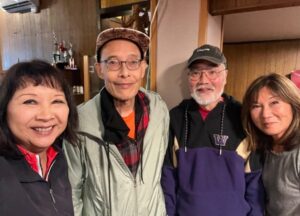
Lori Matsukawa, Ron Chew, Ken Mochizuki, and Mimi Gan in October 2024. Photo courtesy of Lori Matsukawa.
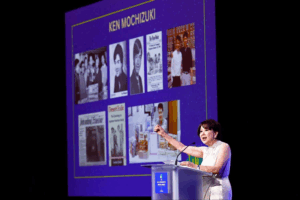
Lori Matsukawa accepting Ken Mochizuki’s Lifetime Achievement Award on his behalf at AAJA’s gala in August 2025. Photo credit: Darrell Miho/AAJA
During our 2025 convention in August, AAJA recognized Mochizuki with a Lifetime Achievement Award for his pioneering work breaking the ceiling for many others to enter careers in film, on stage, in journalism, in TV news production and as authors of historical fiction for children. Lori Matsukawa, Mochizuki’s longtime friend and AAJA-Seattle co-founder, accepted the award on his behalf. He will posthumously receive a Community Voice Award from the International Examiner at its Gala Banquet on October 23, 2025.
Memorial services are pending. In lieu of flowers, the family suggests gifts be made to Wing Luke Asian Museum or the International Examiner.
– The Asian American Journalists Association



